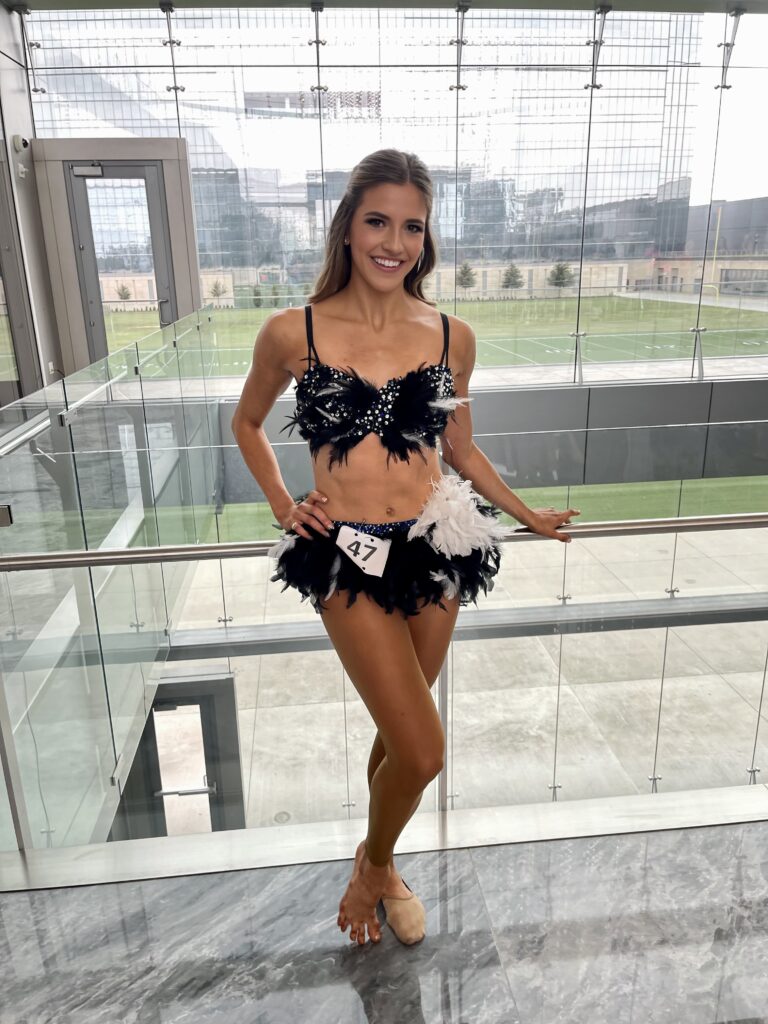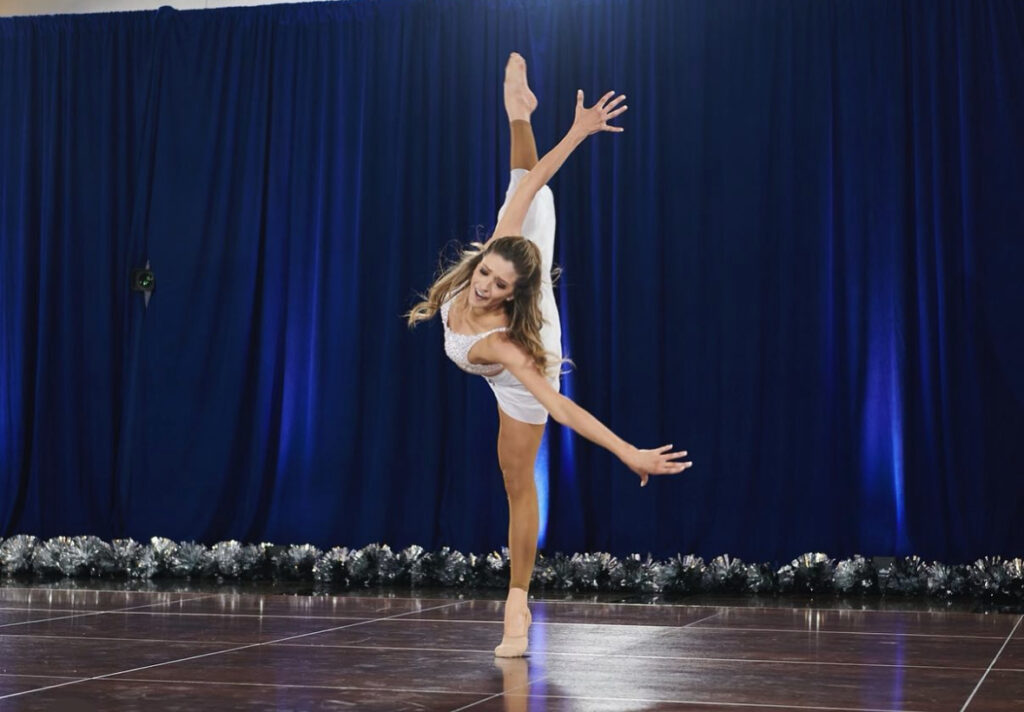Rebecca Troyak revels in being one of ‘America’s Sweethearts’
July 15, 2024

USC Kaufman alumna Rebecca Troyak, member of the Dallas Cowboys Cheerleaders | Photos courtesy of Troyak
Troyak (BFA ’19) talks about her journey to becoming a Dallas Cowboys Cheerleader and how USC Kaufman helped her get there.
The teaser starts with a bang. “You need to look like a supermodel but perform like an athlete,” says a stirring voiceover for America’s Sweethearts: Dallas Cowboys Cheerleaders, Netflix’s latest binge-worthy docu-series.
Rebecca Troyak, graduate of USC Kaufman’s Class of 2019, knows that impossibly high standard better than most. She is one of the 36 dancers that currently make up the Dallas Cowboys Cheerleaders (DCC for short), the official cheerleading squad for the Dallas Cowboys football team.
A national sensation known for its dynamic performances since 1961, the DCC is finding fresh fame as the subject of one of the country’s recent streaming phenomenons. The online chatter has reached a fever pitch. A headline from The Washington Post dubbed the DCC “the greatest show on Earth.” And then there’s this one from The New York Times: “Becoming a Dallas Cowboys Cheerleader is Like Getting Into Harvard.”
As the series makes clear, Troyak and her peers are at the top of their game. They are seen by millions on Sundays, throwing poms in the air and dancing with trademark enthusiasm.
But it’s also clear that Troyak and Co. are adept at making the difficult look easy. Auditioning for the DCC was “the ultimate test of all my dance training,” Troyak says. Among that test was a two-month-long training camp that paired aspiring cheerleaders with superstar choreographers each night, learning new choreography. Or curating and performing a solo in front of 20 judges. Auditionees had to tackle “a little bit of everything”—from contemporary dance to jazz to hip-hop and pom pom.

There were panel interviews, too. Questions ranged from the most straightforward (Why do you want to be a Cowboys cheerleader?) to the most nuanced (Current and world events, anyone?). “It is a dance job that is so much more than dance,” says Troyak, who joined the DCC in 2021 and, per team bylaws, is required to re-audition for the team every year. “The biggest challenge is knowing that your spot is never guaranteed.”
High-stakes-moments are no trouble for the Texas-raised Troyak. She attended the Booker T. Washington High School for the Performing and Visual Arts in Dallas, where she was named a YoungArts finalist and winner for modern dance and choreography. In 2018, she competed on Season 15 of So You Think You Can Dance. A year later, she became one of 33 students admitted to the inaugural cohort of the newly opened USC Glorya Kaufman School of Dance.
She credits the Kaufman years as “the perfect training” for DCC, which often requires 12-hour days and off-field commitments. These often include weekly visits to the Dallas Children’s Hospital and regular appearances on programs like The Today Show. She and her teammates also lead cheering camps for kids throughout the season. Throw in a camera crew capturing your every move for good measure.


“Kaufman mirrored the supportive community I found in the Dallas Cowboys Cheerleaders,” says the jovial Troyak. She points out that the dance world can be “brutal” for its long hours and frequent feelings of disappointment. “Being in an environment filled with inspiration, kindness, and positivity is amazing.”
Joining the DCC wasn’t necessarily the plan. Troyak envisioned performing with a contemporary dance company after college, a choice she believed was the logical progression based on her previous training. She’d spent years convincing herself that it was the only way to achieve a fulfilling career. But then the Cowboys came calling, and suddenly, it didn’t have to be “just one thing.”
Thinking about what advice she might give her younger self or others at the beginning of their careers, Troyak looks back on her experience as a BFA student at USC.
“Kaufman taught me that being a versatile dancer enhances your career, enabling you to make a broader impact,” she says. “This journey has shown me that dance can be a powerful tool for change and growth, personally and within the community.”